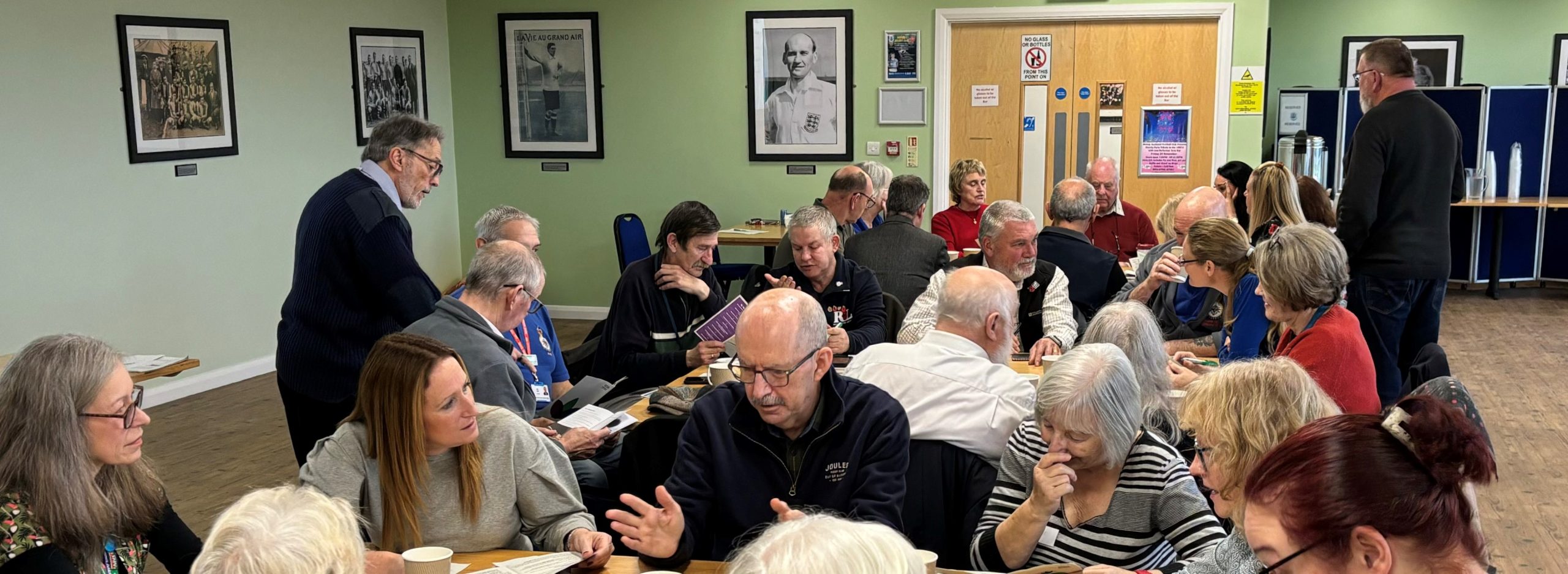
COVID restrictions are lifting but Pelvic Radiation Disease will keep many in ongoing lockdown | Guest Blog
14 July 2020 — david-allen
Each year, many of the 22,000 people treated with pelvic radiotherapy have debilitating side effects which can reduce their quality of life as a result of pelvic radiation disease (PRD). With correct treatment the quality of life of patients can be improved, bringing relief to thousands of patients and support is out there. The Pelvic Radiation Disease Association (PRDA) work to help those living with PRD and improve their day to day lives. Here they tell us about some of their initiatives and how they are able to help, especially given the restrictions of lockdown due to COVID-19.
“Following radiotherapy primarily for prostate, bowel, cervical and endometrial cancers, people can develop Pelvic Radiation Disease (PRD) which is a debilitating and complex group of long-lasting symptoms, including serious problems with bladder and bowel control, sexual health, fertility, mobility and related mental health problems.
People with PRD frequently experience problems such as needing frequent, urgent access to a toilet, chronic fatigue, pain, sleep disturbance and overall being unable to live a normal life. The knock-on effect on personal relationships and finances is often life-changing.
One of our trustees, who has also been a volunteer at the Pelvic Radiation Disease Association (PRDA) for over 10 years, has personal experience of the loneliness that both patients and partners can feel. “Many people have daily problems with bowel and bladder control, which makes leaving the house extremely problematic,” she explains. “People with PRD often plan and organise trips out based on precise knowledge of where accessible toilets are. But coronavirus has caused so many shops, cafes and public toilets to close or have long queues, and many people are left almost completely housebound which has just made their sense of isolation even worse.”
PRDA offers a free ‘Just Can’t Wait’ card which may help you to jump toilet queues, or gain access to toilets which are not normally open to the public.
Since April 2020, our volunteer has been phoning many people with PRD to find out how they are getting on. As one of these people said “When I first found you, I felt waves of relief that there was hope, that I was not alone, you are the first person I have talked to in lockdown who understands”. PRDA is there to help people, and anyone with concerns our questions is very welcome to phone our helpline 01372 744338.

Having just launched its Online Community in June 2020, PRDA aims to provide support to many more people. Discussions on the Community so far include coping with lockdown, bowel incontinence treatment, and radiation-induced neuropathy.
Sarah is the Community administrator and is delighted to see the response so far. “People find it so hard to talk to family, friends or even their doctor about the embarrassing problems of PRD. Our Community forum is a great place for people to chat anonymously with others who are in a very similar situation. I have PRD myself and know what it’s like to feel isolated, confused and anxious. It really helps people feel less lonely if they can chat online, or phone our Helpline, and share experiences with someone who can probably help them to deal with an issue that they might think was unique to them.”

PRDA is also able to advise about local services, such as Late Effects Clinics or gastroenterologists, that are willing to accept referrals for people with PRD symptoms.
People who are given support to cope with PRD and receive effective treatment often say they have ‘got their life back’. From being almost house-bound, people are able to return to work, have a social life, take holidays and feel human again.
Hopefully, the coronavirus restrictions will ease enough to allow people with Pelvic Radiation Disease to feel confident about going out again soon.”
Contact the Pelvic Radiation Disease Association via:
Email info@prda.org.uk“
Message via the website www.prda.org.uk/get-in-touch/
Phone 01372 744338 (current Helpline hours 11.00am to 1.00pm on Mondays, Wednesdays and Fridays or leave a voicemail)
Online Community – open 24/7 at www.healthunlocked.com/prda
Latest Articles
See all Articles
01 August 2025 — Jessica Bailey
Bridging the Gap: Supporting Veterans in County Durham and Darlington with Cancer Information and Support | Guest BlogIn this guest blog post, we hear from the County Durham and Darlington Veterans’ Project as they share how they are supporting veterans with cancer information and support, while working to remove the barriers veterans often face when accessing health and wellbeing services. “In County Durham and Darlington, the percentage of people who have […]

30 July 2025 — Jessica Bailey
NeuroSAFE technique: how it works, benefits and outcomes | Guest Post by Santis HealthThere are often many options when facing cancer treatment and surgery. It’s important to discuss with your oncology team and raise any questions you might have to find the treatment that is right for you. If you have the option of private treatment, there may be procedures to consider that aren’t available on the NHS. […]
